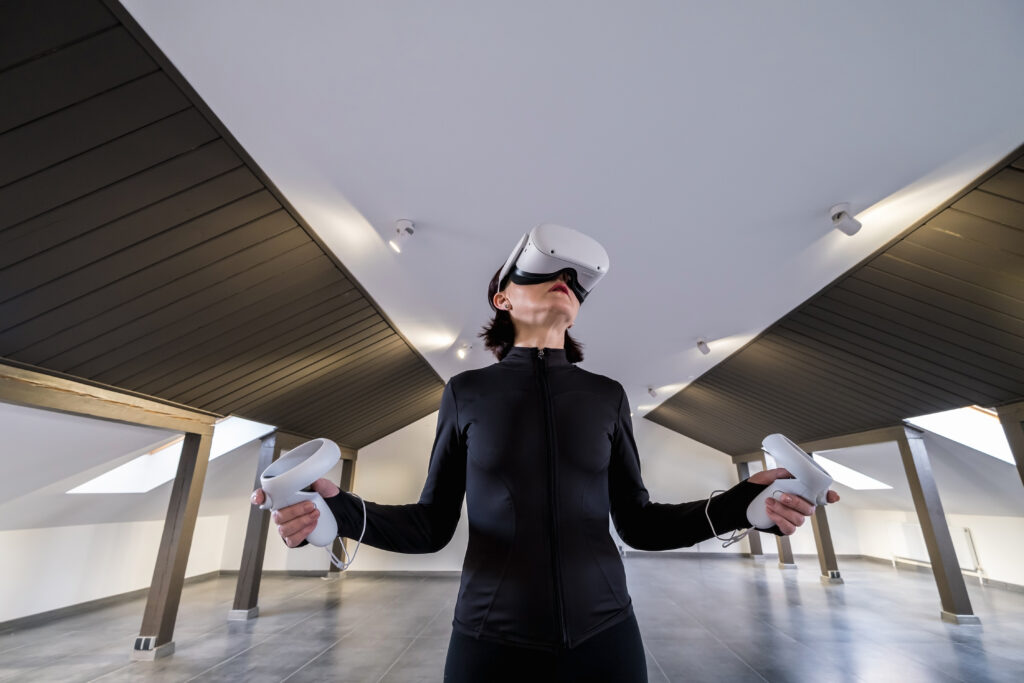Welcome to our exploration of the impact of social media on political discourse and activism in modern society. In an age where the digital landscape is ever-evolving, social media platforms have emerged as powerful tools that shape public opinion, facilitate political discussions, and mobilize individuals towards political activism.

Social media has revolutionized the way people engage with political content and participate in the democratic process. With just a few taps on a smartphone, individuals can stay informed about political news, engage in discussions, and voice their opinions on various platforms.
One of the most significant contributions of social media to political discourse is the amplification of political activism. Through the use of hashtags, viral content, and online activism campaigns, individuals and organizations can reach a wider audience and create impactful movements for social and political change.
However, while social media has undoubtedly enhanced political engagement and activism, it also presents challenges. Online political discourse often falls victim to echo chambers, where individuals are exposed only to viewpoints that align with their own, leading to polarization and a lack of diverse perspectives. Additionally, the spread of misinformation and online harassment further complicates the landscape of online political discussions.
Nevertheless, as we look towards the future, social media remains a powerful force for political activism in the digital age. It has the potential to continue driving political change, but it also requires responsible digital citizenship and critical thinking skills to navigate the complex and evolving landscape of online political discourse.
Join us as we dive deeper into the influence of social media on political discourse and activism, uncovering its strengths, challenges, and future possibilities. Let’s explore how social media has transformed the way we engage with political content and participate in shaping the world around us.
The Power of Social Media in Political Engagement
Social media platforms have drastically transformed the landscape of political engagement in contemporary society. With their widespread usage and accessibility, these platforms have become dynamic spaces where individuals can actively participate in political discussions, stay informed about current events, and support causes they believe in. The role of social media in shaping political engagement cannot be underestimated, as it allows for the dissemination of information, encourages meaningful interactions, and empowers citizens to express their voices on crucial political issues.
One of the key ways social media promotes political engagement is by serving as a hub of information. Platforms like Twitter, Facebook, and Instagram enable users to follow political leaders, media outlets, and organizations, providing access to real-time updates and news articles. The ease and speed with which information can be shared on social media not only keep users informed but also create opportunities for critical analysis and discussion.
“Social media has transformed the way we engage with politics. It has created a space where we can express our opinions, share resources, and mobilize for change like never before.”
In addition to information sharing, social media facilitates discussions and debates on a wide range of political topics. Through comment sections, direct messages, and public posts, users can engage in conversations with both like-minded individuals and those who hold opposing viewpoints. These online interactions often transcend geographical boundaries, allowing for diverse perspectives and promoting a deeper understanding of complex issues. Furthermore, social media provides a platform for marginalized groups to have their voices heard, fostering inclusivity and empowering individuals who may not have access to traditional channels of political participation.
Social media has also played a significant role in mobilizing individuals for online protests, campaigns, and other forms of political activism. Hashtags like #BlackLivesMatter and #MeToo have gone viral, drawing attention to important social justice movements and creating significant momentum for change. Online petitions and fundraising campaigns organized through platforms like Change.org and GoFundMe have also leveraged social media’s reach to garner support and resources for various causes.
The Power of Social Media in Political Engagement – A Data-driven Analysis
To further highlight the impact of social media on political engagement, let’s take a closer look at some data:
| Pew Research Center Survey on Social Media and Politics | Percentage of U.S. adults who… |
|---|---|
| Get news on social media | 55% |
| Express political opinions on social media | 41% |
| Use social media to get involved in political campaigns | 26% |
The data clearly demonstrates the significant role that social media plays in political engagement. A majority of adults rely on social media as a source of news and are actively expressing their political opinions on these platforms. Furthermore, over a quarter of adults are using social media to engage in political campaigns, amplifying their impact and outreach.
Overall, the power of social media in political engagement cannot be ignored. It has revolutionized the way individuals interact with politics, creating a space for information sharing, discussions, and mobilization. As technology continues to evolve, social media is likely to remain a key driver of political participation, shaping the future of democracy in the digital age.
Amplifying Political Activism through Social Media
Social media platforms have emerged as powerful tools for amplifying political activism. The ability to reach a wide audience, share information instantly, and mobilize individuals has transformed the landscape of social and political change. Hashtags, viral content, and online activism campaigns have become catalysts for generating awareness and inspiring collective action.
The viral nature of social media allows political activism to spread like wildfire, transcending geographical boundaries and reaching individuals who may not have been exposed to such issues otherwise. When a hashtag or campaign goes viral, it creates a ripple effect, capturing the attention of millions and igniting conversations both online and offline.

One of the most notable examples of social media amplifying political activism is the #BlackLivesMatter movement. What started as a simple hashtag on Twitter in response to police violence against Black individuals in the United States quickly evolved into a global movement, with protests and demonstrations taking place in cities around the world. Social media platforms provided a platform for sharing stories, organizing protests, and demanding justice, giving a powerful voice to marginalized communities.
Through social media, political activists have the ability to rally support, raise awareness, and challenge the status quo on a scale that was previously unimaginable. It has revolutionized the way people engage with social and political issues, transforming ordinary individuals into agents of change and amplifying their impact.
In addition to hashtags and viral content, online activism campaigns leverage the power of social media to bring about tangible change. These campaigns employ strategies such as online petitions, fundraising drives, and targeted social media advocacy to mobilize supporters and put pressure on policymakers. For example, the #MeToo movement, which highlighted the prevalence of sexual harassment and assault, gained significant momentum through social media, leading to changes in legislation and societal attitudes.
It is important to recognize that while social media amplifies political activism, it also has its limitations. The virality and speed at which information spreads can sometimes result in oversimplification of complex issues, leading to misinformation and the spread of inaccurate narratives. Furthermore, the online space can also be a breeding ground for harassment and hate speech, silencing marginalized voices and hindering meaningful discussions.
Examples of Social Media-Driven Political Movements
| Movement | Description | Impact |
|---|---|---|
| #MeToo | A movement exposing the prevalence of sexual harassment and assault, encouraging survivors to share their stories. | Increased awareness, changed legislation, sparked conversations about consent and gender equality. |
| #BlackLivesMatter | An international movement against systemic racism and police violence, advocating for the rights and equality of Black individuals. | Mobilized global protests, sparked conversations on racial justice, raised awareness about police brutality. |
| #ClimateStrike | A movement led by young activists demanding urgent action on climate change and environmental protection. | Galvanized global climate movement, influenced policy decisions, increased public awareness of environmental issues. |
Despite its challenges, social media remains a powerful tool for amplifying political activism in the digital age. It allows individuals to connect, share experiences, and mobilize for social and political causes. As we navigate the complexities of the online world, it is crucial to approach social media activism with critical thinking, empathy, and a commitment to fostering respectful and meaningful dialogue.
The Challenges of Online Political Discourse
While online political discourse has provided a platform for people to express their thoughts, engage in discussions, and foster political awareness, it also brings forth a set of challenges and drawbacks that need to be addressed. The nature of online platforms presents opportunities for the proliferation of echo chambers, online harassment, misinformation, and the polarization of opinions.
Echo chambers are an inherent risk in online political discourse, where individuals surround themselves with like-minded people and opinions, reinforcing their existing beliefs while dismissing opposing views. This can lead to a lack of diverse perspectives and hinder constructive dialogue necessary for informed decision-making.
Online harassment is another prevalent issue in online political discourse. Social media platforms have become breeding grounds for personal attacks, hate speech, and cyberbullying, silencing individuals with marginalized opinions and hindering healthy debates. The anonymity offered by online platforms often gives rise to uncivil behavior and the spread of toxic discourse.
“The rise of online political discourse has given a voice to both passionate advocates and detractors, but it has also amplified the darker side of social media, with the spread of hate speech and personal attacks.” – Dr. Sarah Thompson, Social Media Researcher
Misinformation is another significant challenge. With the ease and speed of sharing information online, false or misleading content can quickly circulate, shaping public opinion and undermining the credibility of legitimate news sources. This phenomenon can have severe consequences on the democratic process and decision-making based on accurate, reliable information.
The polarization of opinions is also intensified in online political discourse. The anonymity offered by the internet allows people to express extreme views without consequence, leading to a hostile and divisive environment. This discourages meaningful conversations that bridge ideological gaps and perpetuates a climate of hostility and animosity.
To tackle these challenges, it is crucial for online platforms, policymakers, and users alike to prioritize fostering a balanced and inclusive digital space. Implementing mechanisms to counteract echo chambers, such as promoting fact-checking initiatives and encouraging diverse perspectives, can help mitigate the impact of online polarization and misinformation. Additionally, enforcing stricter regulations and community guidelines to combat online harassment and hate speech can create a safer online environment for users to engage in productive political discourse.
The Impact of Online Political Discourse on Democratic Processes
Online political discourse has the power to shape public opinion, influence electoral outcomes, and drive social change. However, without addressing the challenges discussed above, it is imperative to recognize the potential harm it can inflict on democratic processes. It is essential for individuals to approach online political discourse with critical thinking skills, media literacy, and a willingness to engage in respectful and meaningful discussions.

| Challenges | Potential Solutions |
|---|---|
| Echo chambers | Promote diverse perspectives, encourage fact-checking, and foster open-mindedness |
| Online harassment | Enforce stricter regulations, community guidelines, and promote digital empathy |
| Misinformation | Support fact-checking initiatives and promote media literacy |
| Polarization of opinions | Encourage respectful dialogue, address confirmation bias, and promote understanding |
The Future of Political Activism in the Digital Age
As we navigate the digital age, it is clear that social media has become a powerful tool for political activism. With just a few clicks, individuals can voice their opinions, mobilize others, and bring about social change. The digital landscape offers endless possibilities for political engagement and activism, shaping the way we participate in the democratic process.
Political activism in the digital age goes beyond traditional protests and demonstrations. Social media platforms provide a virtual space where individuals from different backgrounds and geographical locations can come together to discuss political issues, share information, and organize movements. This connectivity and accessibility allow for a broader reach and increased awareness, presenting new avenues for political activism.
However, the future of political activism in the digital age also presents its own set of challenges. While social media has the power to amplify voices and bring attention to important causes, it can also be a breeding ground for misinformation and echo chambers. As digital citizens, we must exercise critical thinking skills, fact-check information, and seek diverse perspectives to ensure a healthy online political discourse.
In the coming years, the opportunities for political activism in the digital age are only bound to increase. Social media platforms will continue to evolve, offering innovative ways to engage with political issues and influence public opinion. However, it is our responsibility to harness this power responsibly, promoting constructive dialogue, fostering empathy, and advocating for positive change in our society.



































